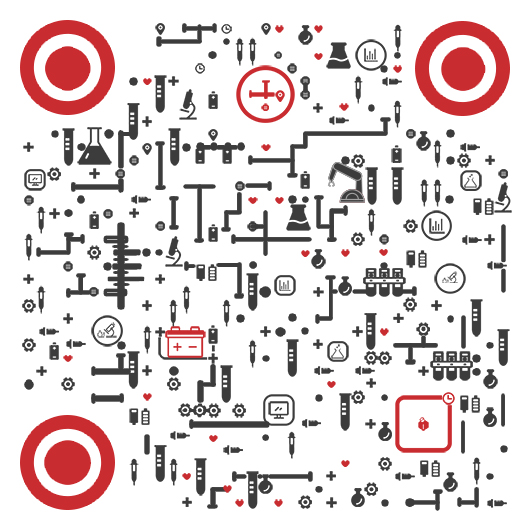Japan Certification
PSE Certification
Certification Introduction
PSE certification (Product Safety of Electrical Appliance & Materials) is the Japanese government's market access system for electrical and electronic products, and is an important element of Japan's Electrical Product Safety Law (DENAN). On April 1, 2001, Japan amended the Electrical Safety Law, administered by METI (Ministry of Economy, Trade and Industry), which does not issue certificates directly, but authorizes third-party certification bodies to conduct conformity assessment tests and issue certificates.
METI authorizes Japan Electrical Safety and Environmental Technology Research Laboratory (JET) and Japan Quality Assessment Agency (JQA), as Certification Authorities (CABs), to be responsible for testing and certification of electrical and electronic products in accordance with the regulations and for market supervision. In addition, TUV, UL, CQC and other organizations are also qualified certification bodies.
According to the regulations, all electrical and electronic products under control need to submit a business declaration to the Japanese Minister of Economy, Trade and Industry before they are manufactured or exported to Japan, and the PSE mark is affixed to the products in accordance with the regulations. The Electrical Safety Law stipulates that Class A and B products are required to affix the PSE diamond logo and PSE round logo respectively. There are two applicable standards.
Provincial Order 1: Japanese domestic standards (including EMI standards)
Provincial Order 2: J standard (without EMI standard) = IEC standard + Japanese difference
Product range
To date, a total of 457 products are under the control of the Electrical Products Safety Law. Among them, 116 products are classified as "specific electrical products - known as Class A electrical products", such as chargers and adapters, which are more dangerous and likely to cause electric shock and fire accidents; the remaining 341 products are classified as "non-specific electrical products - known as Class B electrical products", which are less hazardous. The remaining 341 less hazardous products are classified as "non-specific electrical products - known as Class B electrical products", the majority of small and large home appliances, lighting products, lithium batteries belong to Class B.
| A range of products (116 kinds) | Range of B products (341 kinds) |
| 1. Wires | 1. Wires (except Class A) |
| 2. Fuse | 2. Fuse (except class A) |
| 3. Wiring apparatus | 3. Wiring apparatus (in addition to Class A) |
| 4. Current limiter | 4. Transformer (except Class A) |
| 5. Transformer | 5. Small AC motor |
| 6. Electric heating apparatus (electric water heater, electric steam bath) | 6. Electric heating appliances (electric kettles, electric blankets, electric rice cookers, etc.) |
7. Electric power application mechanical apparatus (electric pump, electric toys, Refrigerated display cabinets, ice cream machines, electric massagers) | 7. Electric power application machinery apparatus (refrigerators, juice machines Electric fan, washing machine, air conditioner, electric drill) |
| 8. Electronic should be apparatus apparatus (high-frequency hair removal device) | 8. Electronic should be apparatus apparatus (radio, television) |
| 9.AC with electrical and mechanical apparatus (DC power supply, electric shock insecticide, magnetic therapy device) | 9.AC with electrical and mechanical appliances (alarms, dimmers) |
| 10. Carry a generator | 10. Light source applications mechanical appliances (LED lamps, table lamps, fluorescent lamps, incandescent lamps) |
| 11. Li-ion battery |
Application Process
1.Customer prepare sample and information to submit to Waltek
2. Waltek laboratory to test, if it is PSE round, then Waltek will issue a declaration letter
3. For PSE diamond shape, factory inspection is also required
4. After passing the test and factory inspection, the issuing agency will issue a PSE diamond certificate
Certification mark
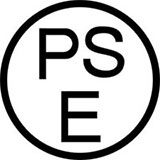
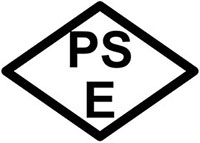
Other information
Technical information: voltage frequency AC 100V/200V , 50Hz / 60Hz, plug JIS 8303
Whether mandatory: mandatory
Certificate validity: for diamond-shaped, 3-7 years, based on the product. For round, no expiration date, no certificate, only VOC can be issued
Factory inspection requirements: for diamond-shaped, only the first factory inspection, no annual audit. For round, no factory inspection requirements
Licensee requirements: for diamond, factory/importer . For round, no requirements
S-Mark voluntary certification
Certification Introduction
The S-Mark is applicable to all electrical and electronic products and covers the scope of PSE certification. It is recommended that B products and products not in the scope of PSE certification apply. Although it is a voluntary certification, more and more manufacturers are now favoring and using S-Mark to gain a competitive advantage in the market, somewhat similar to the German GS. S-Mark also covers Safety and EMC. JET and JQA are currently available for S-Mark certification work, and their marks are S-JET Mark and S-JQA Mark respectively.
Product Scope
All electronic and electrical products
Application process
1. Customer prepares samples and information, and submits the application to Waltek
2) Waltek submits the samples to the laboratory for testing
3、Arrange factory inspection at the same time of testing
4. The issuing organization will review the test report and factory inspection report, and issue the S-mark certificate after the audit is approved.
Marking requirements
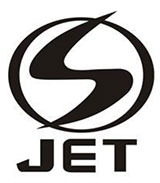
Other information
Technical information: voltage frequency AC 100V/200V , 50Hz / 60Hz, plug JIS 8303
Whether mandatory: Voluntary
Certificate validity: no validity period, annual audit to maintain the validity
Factory inspection requirements: the need for the first factory inspection and annual audit
Licensee requirements: No requirements
Japan Wireless Certification
Certification Introduction
TELEC Certification
Japan's radio frequency equipment for the certification called Radio Equipment Type Approval, the official control body is the Ministry of Internal Affairs and Communications (MIC), the main certification body is designated by the MIC TELEC (Telecom Engineering Center), and a total of 12 certification bodies such as RF Technologies/JQA/SGS/ITS/TUV/UL, etc., so it is often referred to as TELEC certification, or MIC certification, RF certification.
TELEC certification is mandatory, somewhat similar to the domestic SRRC, the certification follows the Japanese "Radio Law" (Radio Law), the specific test specifications are to follow the MIC (Ministry of Internal Affairs and Communications of Japan) Notice No. 88 regulations. According to the requirements of Japan's "Radio Law", the production, sale and operation of wireless equipment in Japan must comply with the technical regulations approved by the MIC, and mandatory application for radio equipment for type approval certificate (i.e. TELEC certification).
JATE Certification
JATE certification is a mandatory certification for public network telecommunication equipment in Japan. The Ministry of Public Administration and Home Affairs, Posts and Telecommunications (MPHPT) has stipulated in Japan's Telecommunications Business Law (Telecommunications Business Law) that mandatory certification of telecommunication equipment is implemented in Japan. The Telecommunications Business Law was established in 1985, and Article 68 stipulates that MPHPT authorizes qualified agents to carry out conformity approval of technical conditions.
MPHPT authorized JATE (Japan Approvals Institute for Telecommunications Equipment) as a qualified agent to implement conformity approval, so we are accustomed to call the Japanese telecommunication equipment certification JATE certification. JATE approval requires a certification mark to be affixed to the product, and the certification mark uses a running number. Information about the applicant, product, and certification number of the approved product will be announced in the government gazette and on JATE's website.
VCCI Certification
VCCI is Japan's electromagnetic compatibility certification mark, managed by the Japan Electromagnetic Interference Control Council (Voluntary Control Council for Interference by Information Technology Equipment), which evaluates whether information technology products meet VCCI requirements according to CISPR 22. VCCI certification is not mandatory, but information technology products sold in Japan are generally required to undergo VCCI certification, which is a symbol of product quality. Manufacturers should first apply to become a member of VCCI before they can use the VCCI logo. In order to be recognized by VCCI, the EMI test report provided must be issued by a VCCI registered and accredited test facility. Products that pass the VCCI standard will be allowed to have the correct VCCI label applied to the product. The A-rated label of the product is required to indicate that the product complies with the RF radiation provisions, and conversely, B-rated products must display only the basic VCCI logo symbol.
Product Range
TELEC certification: wireless devices
JATE certification: communication equipment
VCCI certification: IT information technology equipment
Application process
1. Customer prepares samples and information, and submits the application to Waltek
2、Waltek to test
3. The issuing agency to review the test report, the audit passed, issued a certificate
Labeling requirements
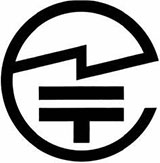
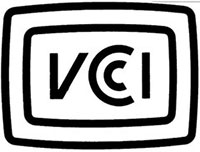
Other information
Technical information: voltage frequency AC 100V/200V , 50Hz / 60Hz, plug JIS 8303
Mandatory or not.
-TELEC certification: mandatory
-JATE certification: mandatory
-VCCI certification: Voluntary
Certificate validity: No validity
Factory inspection requirements: No requirements
Requirements for licensees: No requirements


 Telephone
Telephone  Contact
Contact